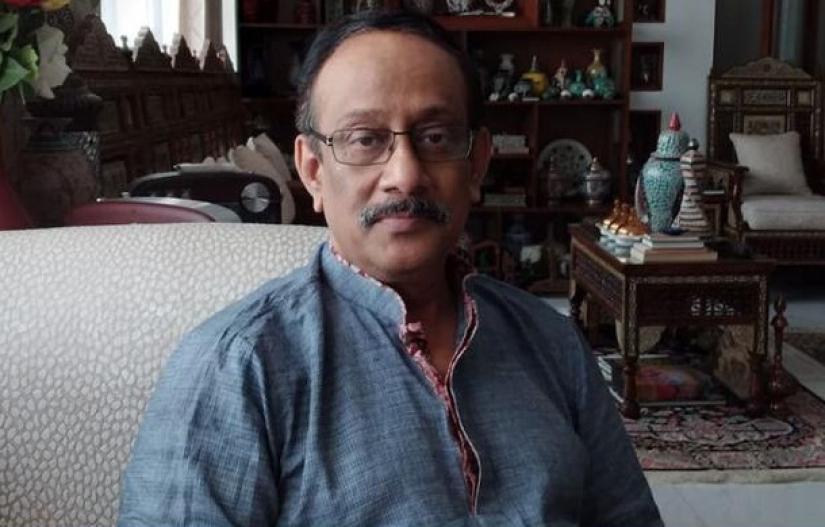 A tiny virus turned the world into a war-zone without a single bullet being fired. Over a span of just 4 months, the Covid-19 infected people in 179 countries and caused over 11,000 deaths. Even in January the projected global growth rate was 2.9 percent, but now it has been revised down to 1.5 percent. Former foreign secretary M Shahidul Haque in an exclusive interview shared his thoughts on how the novel Corona virus will impact trade, economy, and foreign policy. In his view the virus is a threat to international security and strong and able global leadership is needed to deal with the crisis.
A tiny virus turned the world into a war-zone without a single bullet being fired. Over a span of just 4 months, the Covid-19 infected people in 179 countries and caused over 11,000 deaths. Even in January the projected global growth rate was 2.9 percent, but now it has been revised down to 1.5 percent. Former foreign secretary M Shahidul Haque in an exclusive interview shared his thoughts on how the novel Corona virus will impact trade, economy, and foreign policy. In his view the virus is a threat to international security and strong and able global leadership is needed to deal with the crisis.
Global threat and recession
As Corona virus is spreading fast, many countries have declared emergencies and locked down cities and areas and all these have long-term consequences.
“It’s a war-like situation as the whole world is facing security threat and it will lead to recession, which is likely to prolong. The loss occurred due to the outbreak can be compared with damage in a big war or massive natural calamity,” said Shahidul Haque.
The negative impact on economy, business and market is already being felt as different governments and global financial institutions have declared stimulus packages to soothe the pain, he said.
“The extent of damage of Corona crisis will depend on the role global actors and how much they will engage and deploy resources to mitigate the problem.”
Geo-Pandemic
The current crisis will last for quite some time and will impact foreign policy as well.
“Given its international relations, international politics and bilateral ramification, it is possibly a geo-pandemic. Its impact will be felt for quite some time,” Shahidul said.
Explaining its impact on foreign policy, Shahidul said, Lebanon has always maintained anti-IMF stance, but now it is taking loans from the global lender to fight the Corona crisis.
“A tiny virus has changed the foreign relations. Now the biggest question is who will lead the international community to fight this geo-pandemic.”
Now we have a war-like situation and it is very important who will lead because many countries especially the small ones are likely to take position on who is providing the public goods, he said.
“In this inter-connected world, all countries need help and in any global crisis situation, usually a small number of countries take the lead to supply the necessary public goods including policy guidelines, but now we have seen a vacuum in this regard.”
Global leadership
For the last 70 years, America has been leading the world in the time of crisis, but this time a leadership vacuum has been felt which China came forward to fill.
When the crisis started in November, China phobia was very visible and the international players did not work together to fight the global menace like they used to do, said Shahidul Haque
“This is naturally a health issue but geo-political implications are emerging as the days go by. The health issue has turned into geo-political issue when the crisis could not be resolved through multilateral platform due to global leadership problem,” he said.
“As America is not so committed to play its global role, China has come forward as the East Asian country has managed the crisis. The Chinese are now going back to work and opening up their factories and market as they feel confident they are capable of handling any situation.”
Even a 100-year old lady was cured in China and it is a clear manifestation of their capacity to tackle the disease, he said.
“Now they are giving medicines, expertise and apparatus to the whole world including Bangladesh,” he said.
“China has showed that they are capable of giving leadership even in health sector. This has geo-political implication in the long-run both the international politics and multilateral platform.”
Small countries
Small countries like Bangladesh must increase their capacity to fight global problem like Corona by enhancing regional cooperation.
“Of course, global cooperation will work but at the end of the day, a country suffers more if the region it is located does not have the capacity to work together,” Shahidul Haque said.
Citing example, he said, when Italy sought urgent help no European country answered its appeal and Serbian President publicly termed the European solidarity as “a fairy tale” and said “the only country that can help us is China.”
On the contrary, the South Asian leaders under SAARC arrangement are trying to find out a common platform to tackle not only Corona virus problem but also similar problems which might occur in the future, he added.
“No matter it is production, commerce or friendship, the whole world is connected by a single chain and one cannot stop human mobility. Now the question is how to manage it,” he said.
The former foreign secretary felt that countires like Bangladesh must have some contingency plans to face this type of global disruptions.


